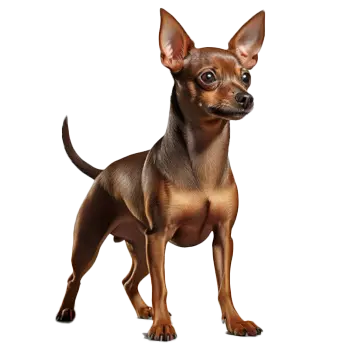Breed Standard
Head: A definite stop separates the domed skull from the small narrow muzzle.
Ears: Are v-shaped and erect.
Eyes: Are dark and round.
Tail: Docked short and carried high.
Hair: Is short and thick. The coat is white with black and tan or tan markings. Other colors do occur.
Height: About 10 inches (25 cm.)
Weight: 3.5-7 pounds (1.5-3 kg.)
History
The Toy Fox Terrier was developed in the USA in the 1930's. It is directly descended from the Smooth Fox Terrier, which was crossed with various toy breeds such as the Miniature Pinscher, Italian Greyhound, Chihuahua and Manchester Terrier, with the intent of miniaturizing it. Its first use was hunting rats. The Toy Fox Terrier was recognized by the AKC in 2003.
Behavior
Toy Fox Terriers, like many active and intelligent breeds, can learn to respond to a number of words. Toy Fox Terriers were used commonly in circus shows by clowns, and they are said to make great companions for owners with a good sense of humor. As a terrier breed, they are often active, though perhaps not as active as the Jack Russell Terrier, and are said to be well suited for older owners. They are quite trainable and often cited as making wonderful companions for people with disabilities. They are also very lovable and loyal to their owners. In addition, dogs of this breed tend not to bark very much if they are trained well.
Toy Fox Terriers adapt well to apartment life but love to have room to run. They are active indoors and will do without a yard, as they can usually take care of their own exercise needs. They often have trouble tolerating cold weather without careful acclimation. The Toy Fox Terrier is easy to groom, although grooming is generally seen as unneeded due to how short the hairs are (under a centimetre in length most of the time). Sometimes, it is necessary to comb and brush the coat. The hairs shed very frequently.
Function
Pet.
Health
Some are prone to patellar luxation (slipped stifle). Legg-Calv -Perthes syndrome and von Willebrand's disease are uncommon. Some dogs are allergic to beet pulp, corn, and wheat. Some dogs are also allergic to tomatoes.






